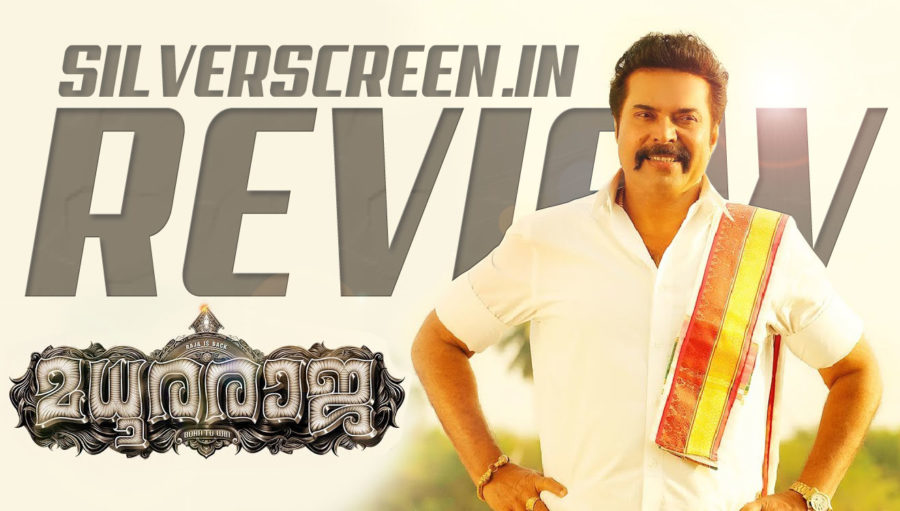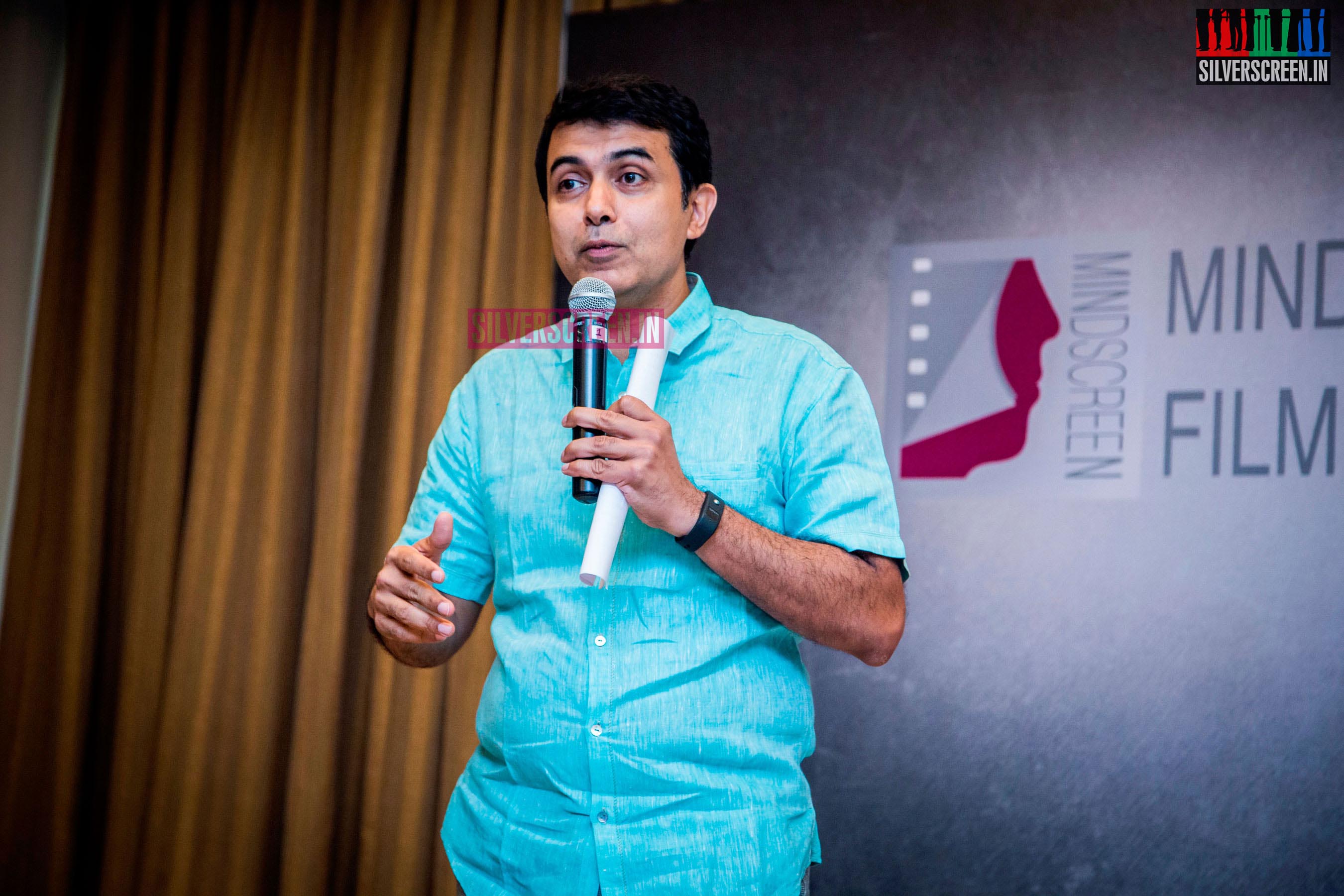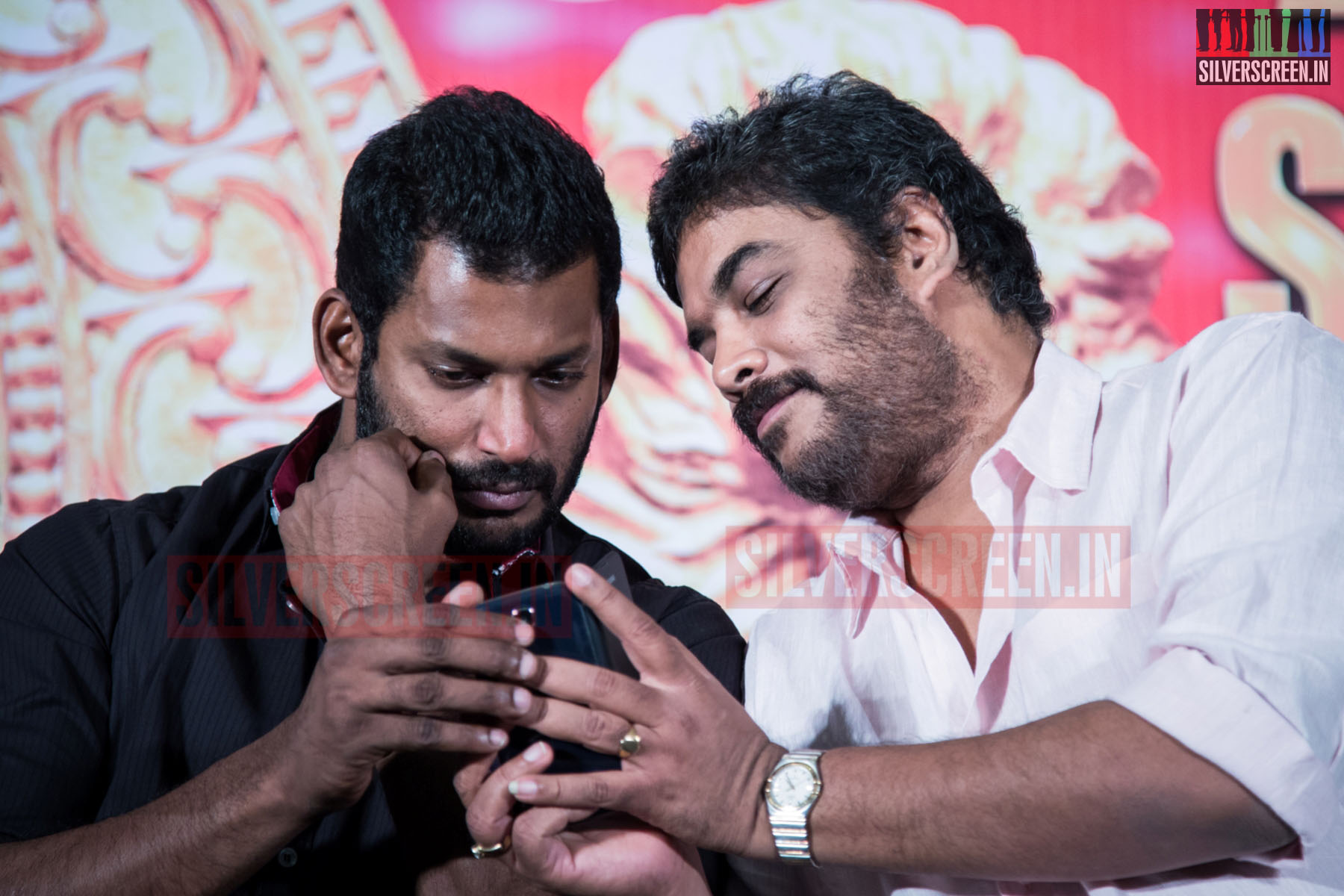Director: Vysakh
Cast: Mammootty, Jagapathy Babu, Anusree, Jai
In a recent promotional interview for his latest star-vehicle, Madhura Raja, Megastar Mammootty said the core audience for the film is children. Let us assume this is right. Where does this leave us? Within the first ten minutes of the film, a police man is bit, chewed and torn into pieces by a pack of ferocious hounds. There is blood and blood-stained dog tooth in close-up shots. Sound is notched up to the loudest levels, as though the makers want no child among the audience to escape the trauma the scene is capable of inducing. Two scenes later, Aju Varghese cracks a rape joke. Common sense, and all other kinds of good sense, is beaten to pulp to make this film, an utterly tone-deaf one that proceeds like Hema Malini on her election campaign, taking its audience’s thinking capacity for granted.
Madhura Raja, directed by Vysakh whose career is made of films that revolt against reason, good humour and political correctness, is a foll0w-up to the director’s 2010 blockbuster, Pokkiri Raja. That film is largely responsible for bringing to the Malayalam cinema the crudeness of a Hari movie. Everything – sound, cinematography and performances – was loud. The plot was so-and-so, but the characterization of Raja (Mammootty) had a steady foundation which made a spin-off possible. Despite being invincibly powerful, the man had a heart of butter that melts for his people, and he displayed an irrepressible urge to converse in English, a symptom that came out of repressed shame about his lack of education. He wore nonsense on his sleeve, but was strangely adorable.
Pokkiri Raja reeked of stereotypes and an excess of old-fashioned cheese, but Madhura Raja brings on board inanity several degrees higher than the former. The story here is set on an islet in Vypeen archipelago ruled over by Nateshan (Jagapathy Babu), a rich man who is involved in counterfeit alcohol business and organ trade which he hides beneath his charity works. Raja’s father Ravunny Master (Nedumudi Venu) and his cousin (Vijaya Raghavan), who head a government committee entrusted to investigate Nateshan’s bar business, arrive in the village. They are immediately threatened by Nateshan and his men, including the sub-inspector of the local police station. When matters turn serious, Master turns to the camera and announces in style that he is going to seek the help of his valiant elder son, Raja who is in Madurai, preparing to contest local elections. What follows is a mind-boggling series of events at the end of which Raja becomes a minister in the state assembly.
Pokkiri Raja‘s naivety was moderately enjoyable. It was fresh for the time – no one thought goofiness and cheese sell so much in this decade in Malayalam cinema – and the film emerged a blockbuster. Madhura Raja is aware of the popularity of its hero and its capacity to evoke laughter using child-like humour. There is an excess of every element. For instance, Raja’s ungrammatical English (“I Raja come today…), which was used with restraint last time, is overused to an extent that it is flat and bland here. Madhura Raja seems to be deeply confused about its popular perception as a comedy film. An important character is murdered by the villain, and the film follows it up with goofy scenes where everyone pretends nothing happened. The light-heartedness that the film tries to bring on board rings hollow. The elements of ‘punch’ – an unnecessarily loud and meaningless BGM that praises the hero, slow-motion shots and close-ups that showcase the fear and excitement he inspires in people around him – come every few minutes in the narrative. So much so that they lose their punch. The action scenes have Raja pulling off gravity-defying acrobatics and butchering goons with a Balayya-like swag. It is a test of your ability to suspend disbelief.
Manoharan (Salim Kumar), the comic novelist who worked as sort of a narrator in Pokkiri Raja, reappears in this film, and his duty is largely to sing Raja’s glory. It is justified to some extent since they are in a new territory, a Vypeen island village, where Raja is a stranger. However, Salim Kumar, the national award winning actor, hams it up like a novice who doesn’t know how and when to dial it down. Which is surprising because he was, until a few years ago, one of the most intelligent comedians in Malayalam cinema. There is a scene where he helps Jai, who plays Chinna Rasa, Raja’s brother, to trick a pretty young woman into giving him a kiss on the mouth. While the youngsters go about their act, the camera focuses on the drooling Manoharan. It is a painful sight.
Recommended
Anusree plays Vasanthi, a self-made entrepreneur who runs a lake-side resort. She is short-tempered – she often beats up her employees and sometimes, the clients at her resort. It is nothing short of a miracle that her business, in spite of her attitude problem, is able to stay afloat. She locks horns with Raja whom she detests at first sight. The film, in the second half, tosses in suggestions that she might have developed an affection for Raja. It is a terrible idea, but thankfully, we get no duets. The film, like some of the recent Malayalam mainstream films, uses the Me Too movement as a butt of witless jokes. Sunny Leone appears in a forgettable item dance sequence which is followed by crude jokes: “How can you keep the gate open and then complain about trespassing?” asks a politician whom Leone’s dancer accuses of sexual harassment.
The film’s weakest element is its villain, Nateshan, who wears a stony expression for most of the time, even when he is on his election campaign. His evilness is flat, sans an idiosyncrasy that can make an antagonist memorable. Jagapathy Babu’s foreignness – his lip-sync is terrible – further brings down the characterization. A local actor might have done a far better job in the role, for it needs to match up to Raja’s dramatics.
*****
The Madhura Raja review is a Silverscreen original article. It was not paid for or commissioned by anyone associated with the movie. Silverscreen.in and its writers do not have any commercial relationship with movies that are reviewed on the site.



